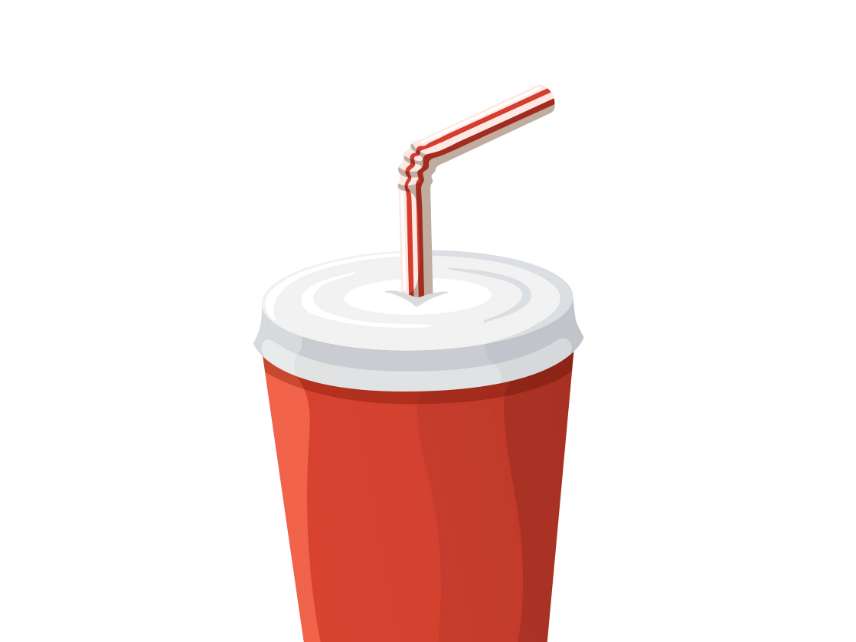Anti-Straw Activists Are Now Trying to Get Rid of Plastic Straw Emojis
Environmental group Lonely Whale and Bacardi have teamed up to fight the little "straw in cup" symbol.

If you're experiencing extreme nausea, it's possible you've drunk a little too much Bacardi rum. Alternatively, you might have just stumbled across Bacardi's new campaign to eliminate the drinking straw from your favorite emojis.
On Friday, Bacardi, along with anti-straw activist group Lonely Whale, launched their new "The Future Doesn't Suck" campaign, with the goal of eliminating a billion plastic straws by the year 2020.
The first stop toward achieving this goal is apparently to ditch those little cocktail emojis that, very problematically, also depict the now verboten drinking utensil.
To that end, Bacardi has released a "cease and de-sip" letter written from the perspective of Sydney the Sea Turtle to the Unicode Consortium—a nonprofit that helps to standardize graphic displays of characters and symbols across different operating systems—asking that the two straw-depicting emojis included in the current Unicode ("Tropical Drink" and "Cup With Straw") be axed.
"Listen, big fan of the diverse ocean life representation in emojis—but we need to talk. The thing is, everyone below sea level thinks you guys suck," writes Sydney in an emoji-peppered message. "I'm sure you know that in America alone, millions of single-use plastic straws are used every day and most of those end up in my backyard. Outside of the fact that they're taking up valuable real estate down here, they are also—quite literally—killing us."
Bacardi and Lonely Whale also released a video version of this letter read by comedian Daniel Franzese, as well as the new hashtag #thefuturedoesntsuck.
The celebrity endorsement and hashtag campaign are typical of previous Lonely Whale-backed efforts. Notably missing is the statistic the group once frequently touted about Americans using 500 million straws a day. That's been replaced by a less specific "millions" a day.
That figure—which has appeared in news reports, advertising campaigns, federal government press releases, and municipal straw ban legislation—has mercifully started to fall out of circulation after the reliability of its source (a phone survey by a 9-year-old) was called into question.
(It's still possible that Americans use 500 million straw emojis a day, though.)
Bacardi and Lonely Whale's campaign is obviously meant to be playful and funny, so one shouldn't judge its ridiculousness too harshly. Nevertheless, its very existence seems to refute one of the major justifications for banning plastic straws in the first place.
One study estimated that straws are about .02 percent of annual marine plastic waste. Getting rid of them will do almost nothing to solve the admittedly very serious problem of marine plastic pollution. That would seem to make the focus on the plastic suckers a bit silly.
Not so, says Lonely Whale, which often argues that plastic straws are a "gateway plastic"—an item so ubiquitous yet inessential that their elimination will be impossible to ignore but be neither irritating nor inconveniencing. Their noticeable disappearance (either through private pressure campaigns or public prohibition) will then inspire people to cut more plastic out of their lives, and think more seriously about other ways they might address the problem of global plastic pollution.
Instead, what the campaign to eliminate straw emojis suggests is that the focus on banning plastic straws is actually just getting dumber over time, as activist groups focus on even less consequential things to eliminate.
Indeed, I'm not even sure the anti-emoji campaign works as symbolism, as there's really no reason to assume that the emojis Lonely Whale and Bacardi are calling out depict problematic plastic straws. A little creative reimagining, and we could just pretend that these emojis have been using paper straws all along.
That wouldn't necessarily be less stupid, but it would be less effort. It would also have the exact same effect on the world's plastic-filled oceans.
Rent Free is a weekly newsletter from Christian Britschgi on urbanism and the fight for less regulation, more housing, more property rights, and more freedom in America's cities.


Show Comments (107)